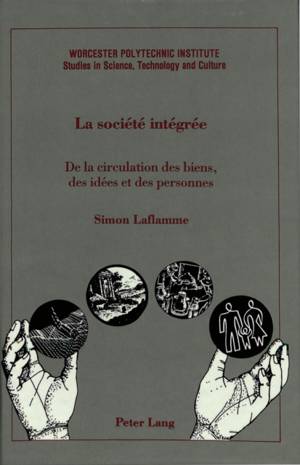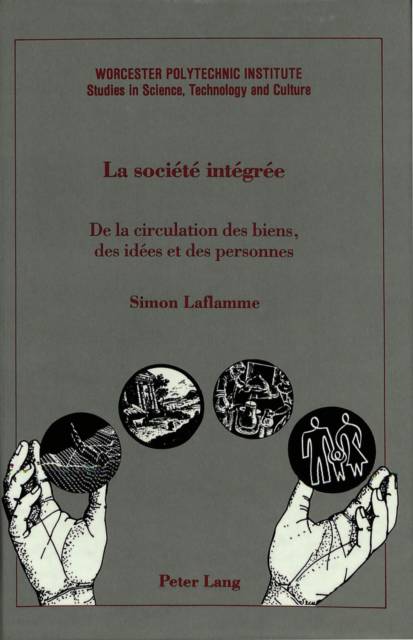
- Afhalen na 1 uur in een winkel met voorraad
- Gratis thuislevering in België vanaf € 30
- Ruim aanbod met 7 miljoen producten
- Afhalen na 1 uur in een winkel met voorraad
- Gratis thuislevering in België vanaf € 30
- Ruim aanbod met 7 miljoen producten
Zoeken
€ 114,45
+ 228 punten
Omschrijving
Au carrefour des approches économique, communicationnelle et sociologique, ce livre tente de construire un modèle qui permettra d'étudier tout à la fois la circulation des biens, des idées et des personnes. Ce modèle se veut dialectique et il a pour fondement l'échange. Le livre compte quatre parties. La première présente une épistémologie de base et tente d'inscrire le principe d'échange dans la tradition des sciences sociales. La deuxième essaie de montrer l'importance et les conséquences d'une approche relationnelle à laquelle se rattache le principe d'échange. La troisième cherche à combiner le concept de pouvoir et celui d'échange. La quatrième, enfin, construit un modèle pour une analyse de la société intégrée.
Positioned at the crossroads of economy, communications, and sociology this book constructs a model to concurrently study the circulations of goods, ideas, and people. The model presented is a dialectical one based on the principle of exchange. The book falls into four parts. The first presents the basic epistemology and attempts to write the principle of exchange into the tradition of the social sciences. The second part demonstrates the importance and consequence of linking the principle of exchange to a relational approach. The third part seeks to combine the concepts of power and exchange while the final part presents an Model for the analysis of integrated society.
Positioned at the crossroads of economy, communications, and sociology this book constructs a model to concurrently study the circulations of goods, ideas, and people. The model presented is a dialectical one based on the principle of exchange. The book falls into four parts. The first presents the basic epistemology and attempts to write the principle of exchange into the tradition of the social sciences. The second part demonstrates the importance and consequence of linking the principle of exchange to a relational approach. The third part seeks to combine the concepts of power and exchange while the final part presents an Model for the analysis of integrated society.
Specificaties
Betrokkenen
- Auteur(s):
- Uitgeverij:
Inhoud
- Aantal bladzijden:
- 310
- Taal:
- Frans
- Reeks:
- Reeksnummer:
- nr. 12
Eigenschappen
- Productcode (EAN):
- 9780820418698
- Verschijningsdatum:
- 1/02/1993
- Uitvoering:
- Hardcover
- Formaat:
- Genaaid
- Gewicht:
- 589 g

Alleen bij Standaard Boekhandel
+ 228 punten op je klantenkaart van Standaard Boekhandel
Beoordelingen
We publiceren alleen reviews die voldoen aan de voorwaarden voor reviews. Bekijk onze voorwaarden voor reviews.










